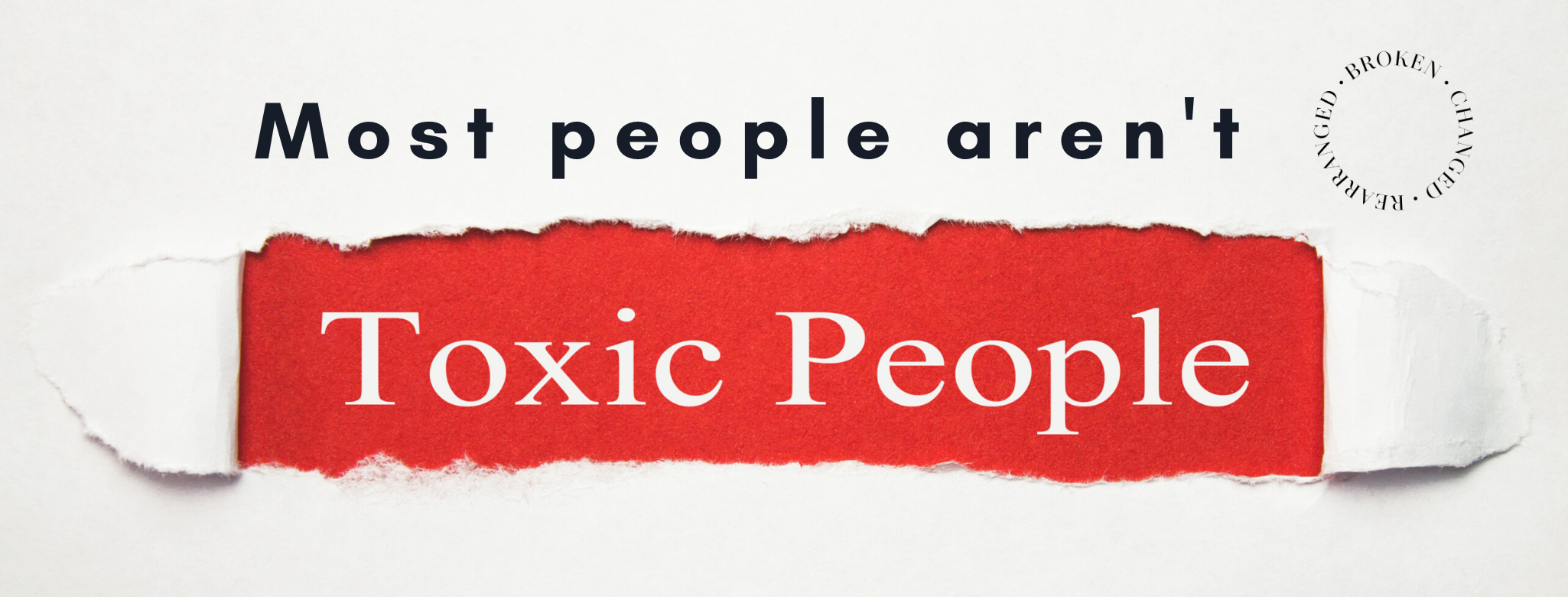In the self-development world, we often focus on toxic people instead of toxic behavior. We create robust descriptions, categories and labels to identify these difficult personalities.
While I love a good label, most people aren’t purely toxic at the core (personality disorders excluded and they’re rare).
Most people are good individuals who occasionally engage in toxic behavior.
So, how do we take control of toxic behavior in our lives?
Here is my perspective
Drop the labels:
Not everyone who engages in toxic behavior is a toxic person. Labels are comfortable and I think we use them because it’s easier to write someone off versus addressing their behavior. Accept that most people do not have personality disorders. The majority of people have good intentions and engage in toxic behaviors at times. Dropping the “toxic person” label opens up the opportunity for you to address the behavior. It frees you up from seeing someone as “all bad.”
Cliff’s Notes: Stop labeling people as completely “toxic”. People with personality disorders are the exception, but remember they are incredibly rare. Most people you are dealing with are good people who sometimes engage in bad behaviors.
Recognize you have more control than you realize:
You are not a victim of toxic people or toxic behaviors. You have more control than you realize. When someone engages in a toxic behavior, it’s important you set a boundary. If they are a good friend, I would challenge you take it to another level by being curious with them.
For instance, I had a good friend who always needed to address conflict immediately. Once she knew I was frustrated with her, she would show up at my door unannounced and expect us to deal with our issues immediately. It felt like a huge violation of my personal space and time. I felt obligated to answer the door, let her in and talk through issues. It drove me crazy. She did this regularly and it was a repeated pattern. Instead of writing her off as toxic, I got curious with her about this behavior. I made it clear the behavior felt like a violation of my personal boundaries. I also told her I was happy to set up 1:1 time to address any conflict we needed to work through. After setting the boundary, I got curious with her, “Help me understand why you do this.” She explained, “I’m always afraid if I don’t address conflict immediately then people will leave me.” We talked through the root of her childhood fears and agreed on a plan for addressing conflict in our relationship.
Cliff’s Notes: When a behavior someone else engages in makes you uncomfortable, set a boundary. If it’s a close friend, become curious with them in order to help them identify the root.
Let’s practice setting a boundary with my example above. Here’s what I said to my friend.
“One of my core values is people respecting my time. When you show up at my door unannounced, I feel like you’re not respecting my schedule and valuing my time. If we are in conflict, I am happy to set up a 1:1 time with you to address our issues in person. However, I will not answer the door in the future if you show up unannounced.”
Accept you engage in toxic behaviors too: We all engage in toxic behaviors. Typically, these behaviors are rooted in faulty beliefs we accepted years ago.
For a very long time, I was extremely conflict averse in all my relationships. Instead of addressing conflict head on, I would use a third party to get the message delivered. This started with my family structure. We rarely addressed conflict directly. Instead, we talked to someone else inside the family unit to deliver the message to the receiver who offended us. This toxic behavior became extremely apparent after I got married. I didn’t have a third party to tell my husband how pissed off I was. This toxic behavior took years of therapy to un-do and my husband’s patience with me.
Cliff’s notes: Accept you engage in toxic behaviors as well. When someone else notices a toxic behavior in you, be willing to get curious on why you act this way. Typically this is rooted in a pattern you learned as a child or a belief structure that isn’t true. Develop a plan on how to overcome this toxic behavior.
I hope this perspective helped you on focusing less on “toxic people” and more on “toxic behaviors”.
As far as personality disorders go (ignore all my advice above and find a really fantastic licensed counselor),


